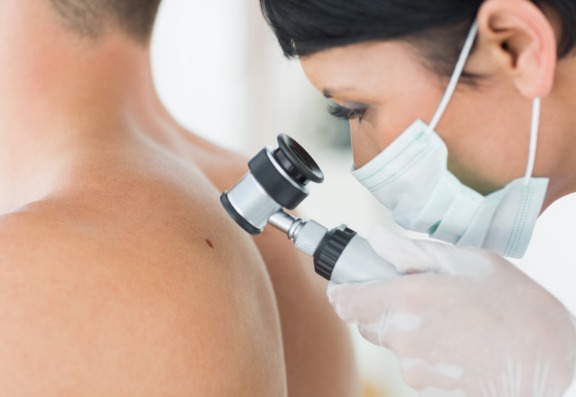I know that the “Wear SPF daily!” requests from myself and other skincare and healthcare professionals can seem a little repetitive, but please believe me when I say that they come from a well-meaning place.
As I try to highlight regularly, skin damage caused by overexposure to UVA and UVB rays can speed up the visible symptoms of ageing, from fine lines and wrinkles to pigmentation.
A good quality sunscreen, worn every day, can help to delay the need for a patient to undergo a non-surgical aesthetic treatment to tackle this issue.
However, it’s not just lines and wrinkles that I am concerned about.
Overexposure to UV light is the main cause of non-melanoma skin cancer, a condition that presents in over 100,000 new patients in the UK every year.
It is also the key contributing factor in melanoma – the fifth most common cancer in the UK – which has over 13,500 new cases every year.

It’s easy to think that these problems won’t affect you, but that’s just not the case. Last year, I noticed a lesion on the scalp of one of our patients and referred her straight to her Dermatologist for further investigation. She kindly shared her experience in a review, highlighting that these issues really can affect anyone:
“On my last visit Clare noticed a lesion on my scalp and suggested that I got a further opinion, for which I was very grateful. It was cancerous and successfully removed by a skin specialist cancer surgeon. Thankfully, today all went well.”
S.A – review from December 2017.
With abnormal growths on the back, head, or in other hard-to-reach areas, it’s easy to not notice changes that would trigger concern.
It’s also easy to think that changes to moles, etc are a natural process and nothing to be worried about.
This is why I strongly recommend that patients keep an eye on their skin, and on the skin of their loved ones.
If you notice anything unusual at all – be it a lack of symmetry in a mole, irregular borders, uneven colour or large growths, or have a sore that won’t heal or is uncomfortable, please visit your GP, or recommend that your loved one does.
For more information about what to look out for, visit the NHS website today: www.nhs.uk/be-clear-on-cancer/symptoms/skin-cancer
So please – check your moles regularly, and take care in the sun. Wear a good quality SPF and top it up regularly, particularly if you have been in the swimming pool or sea or have been sweating.

It’s also important to wear a sun hat and sunglasses, and ideally cover your skin with long-sleeved, lightweight and breathable clothing.
Seek shade when the sun is at it’s strongest (between 11am and 3pm), and remember to stay hydrated when the weather is hot.
Your skin looks after you, so why not look after your skin?
1 https://www.nhs.uk/conditions/non-melanoma-skin-cancer/
2 https://www.nhs.uk/conditions/melanoma-skin-cancer/#what-causes-melanoma
If you want to read more, the experts at Consulting Room really know what they're talking about and have put together some lines and wrinkles, abnormal growths, Pigmentation, and sunscreen FAQs just for you.
If you have more questions, you can use the lines and wrinkles, abnormal growths, Pigmentation, and sunscreen questions feature to talk to our panel of trained medical experts.
If you're keen to get started with any of these treatments right away then you're in luck - those clever folks also have a list of trusted, accredited lines and wrinkles, abnormal growths, Pigmentation, and sunscreen clinics in your area.
Many thanks to the author of this blog Clare McLoughlin who founded Appearance Based Medicine in 2004, driven by a desire to provide advanced facial rejuvenation solutions and aesthetic treatments to patients in Marlow, Buckinghamshire and the surrounding areas.
People choose Appearance Based Medicine because of the top-quality and personable service that they receive, and always leave the clinic with a welcome boost to both their inner confidence and outer radiance.
Call Clare McLoughlin now on 01628 303 020 or visit www.ab-med.co.uk.

Loved by Victoria Beckham and Kim Kardashian, BBL HEROic™ is now available at Dr Nina Bal’s clinic for anyone ready to upgrade their skin.
Belotero vs. Juvederm: They are two of the most popular fillers for lip augmentation, but which is the right one for you?
Croma’s latest range brings professional in-clinic results into your everyday routine. Clean, vegan, and packed with powerhouse ingredients, these products are designed to hydrate, brighten, protect, and fight early signs of ageing.
Hey, wait!
Before you go.....
Let's stay in touch, pop your details here and we'll send our editor's hand-picked updates on your fave subjects.